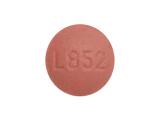- Bestselgere
- Erektil Dysfunksjon
- Menns Helse
- COVID-19
- Generell Helse
- Håravfall
- Blodtrykk
- Diuretika
- Kvinners Helse
- Smertestillende
- Allergi
- Hudpleie
- Anti-depressiva
- Urter
- Alkoholisme
- Diabetes
- Antiviral Midler
- Gastro Helse
- Antiparasittmiddel
- Astma
- Antibiotika
- Kreft
- Prevensjon
- Gikt
- Kardiovaskulær
- Psykisk Sykdom
- Reisesyke
- Alzheimers Sykdom
- Antibakteriell
- Kolesterol
- Muskelrelakserende
- Anti Sopp
- Øyedråper
- Vekttap
- Hormoner
- Parkinsons Sykdom
- Veterinære Legemidler
- Røykeslutt
- Menns ED Pakker
- Vitaminer
- Hepatitt C Virus (HCV)
- Betennelsesdempende
- HIV
- Søvnhjelp


Frakt over hele verden

Pakke levering forsikring

Neste bestillinger 10% rabatt
Common use
Ranitidine is an H2 (histamine-2) receptor antagonist used to reduce stomach acid production. It is prescribed to treat gastric and duodenal ulcers, gastroesophageal reflux disease (GERD), Zollinger–Ellison syndrome, and heartburn. It works by blocking histamine receptors in the stomach lining, thereby decreasing acid secretion.
Dosage and direction
Ranitidine is available in tablet, capsule, and injectable forms. Typical adult oral doses are 150 mg twice daily or 300 mg once daily at bedtime, depending on the condition being treated. It can be taken with or without food but should be taken with water and at regular intervals for best results.
Precautions
Before using ranitidine, inform your doctor if you have kidney or liver problems, porphyria, or a history of acute allergic reactions. It should be used with caution in older adults and long-term users due to potential risks. Avoid alcohol and NSAIDs, which may worsen gastric irritation.
Contraindications
Ranitidine should not be used in people with a known allergy to H2 blockers. Use during pregnancy or breastfeeding should be evaluated by a doctor. It is also not recommended for use in patients with a history of QT prolongation without medical supervision.
Possible side effects
Common side effects include headache, constipation, diarrhea, and fatigue. Rare side effects include liver dysfunction, bradycardia, skin rashes, and confusion in elderly patients. Long-term use may alter vitamin B12 absorption.
Drug interaction
Ranitidine may reduce the absorption of medications that require an acidic environment, such as ketoconazole or itraconazole. It can also interact with warfarin, glipizide, and midazolam. Always tell your doctor about any medications or supplements you are using.
Missed dose
If you miss a dose, take it as soon as you remember. If it’s almost time for the next dose, skip the missed one. Do not double the dose.
Overdose
Overdose symptoms may include unusual tiredness, vomiting, rapid heartbeat, or difficulty breathing. Seek emergency medical help in case of suspected overdose.
Storage
Store at room temperature, away from light and moisture. Do not store in the bathroom. Keep out of reach of children.
Disclaimer
We provide only general information about medications which does not cover all directions, possible drug integrations, or precautions. Information at the site cannot be used for self-treatment and self-diagnosis. Any specific instructions for a particular patient should be agreed with your health care adviser or doctor in charge of the case. We disclaim reliability of this information and mistakes it could contain. We are not responsible for any direct, indirect, special or other indirect damage as a result of any use of the information on this site and also for consequences of self-treatment.
| Leveringsmåte | Leveringstid | Pris | |
 Levering Levering |
14-21 dager | 10$ | Sporing # tilgjengelig i 4 dager |
 Levering Levering |
5-9 dager | 30$ | Sporing # tilgjengelig i 2 dager |





























